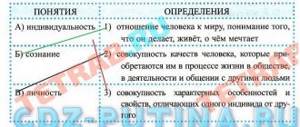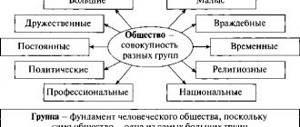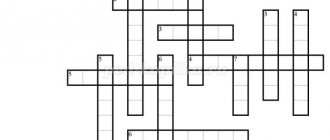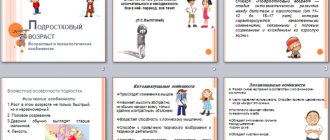Methods of scientific knowledge
Methods of cognition are a system of principles and rules of practical and theoretical activity.
Methods of cognition are generalized at two levels:
- Empirical level
- Theoretical level
| Empirical level | |
| Empirical (experimental) methods of cognition | — knowledge of scientific facts, discovery of empirical patterns. |
| Forms |
|
| Methods |
|
| Theoretical level | |
| Theoretical (rational-logical) level | - knowledge of essential connections, principles and laws. |
| Forms |
|
| Methods |
|
Features of scientific knowledge
- Objectivity of knowledge about nature, man and society
- Consistency, evidence, consistency
- Verifiability
- Availability and constant development of the conceptual apparatus (terminology)
- The use in activities of special methods and methods of obtaining knowledge about the subject being studied
- High level of generalization of acquired knowledge
- The universality of knowledge, that is, the possibility of its use in various branches of knowledge and areas of human activity.
Principles of scientific knowledge (that is, the starting points, rules on which scientific activity is based)
- The principle of causality is the establishment of cause-and-effect relationships between the studied phenomena, processes, and events.
- The principle of truth – that is, the correspondence of knowledge to the content of the object being studied.
- The principle of relativity - any scientific knowledge is relative, since it is limited by the capabilities of science for a given period of development of society and will be added to with the development of science, technology and the human mind.
Forms of knowledge
- Scientific knowledge . A type of knowledge based on logic, scientific approach, conclusions; also called rational cognition.
- Creative or artistic cognition (reflects the world around us with the help of artistic images and symbols)
- Philosophical knowledge . It lies in the desire to explain the surrounding reality, the place that a person occupies in it, and what it should be.
- Religious knowledge . The object of study is God, the moral principles characteristic of a given religion.
- Mythological knowledge . Cognition characteristic of primitive cultures.
- Self-knowledge . Knowledge of one’s own mental and physical properties, self-awareness. Methods of self-awareness: introspection, introspection.
Solve tasks and variants of the Unified State Exam in social studies with answers.
Topic 1. Cognition and its forms
It is human nature to want to understand the world around us. Cognition is the process of a person acquiring knowledge about the world, society and himself.
The result of cognition is knowledge.
The subject of cognition is the one who is engaged in cognition as a type of activity, that is, a person, groups of people or the entire society as a whole.
The object of cognition is what or who the process of cognition is directed at. This can be the material or spiritual world, society, people, the person himself, knowing himself.
Epistemology – (Greek gnosis - knowledge, logos - teaching)
is a science that studies the features of the cognitive process.
Cognition has two forms (or levels).
Topic 5. Scientific knowledge
Unified State Exam 2018 in social studies - Cognition
Scientific knowledge
–
a special type of cognitive activity aimed at developing objective, systematically organized and substantiated knowledge about nature, man and society.
The main features of scientific knowledge are the following:
– objectivity of the acquired knowledge; – development of the conceptual apparatus (categoriality); – rationality associated with consistency, evidence and consistency; – verifiability; – high level of generalization of knowledge; – versatility; – use of special methods and methods of cognitive activity.
Scientific knowledge is universal in the sense that it can make any phenomenon the subject of research, it can study everything in the human world - be it the activity of consciousness, the psyche, or the economic activity of man. However, everything that science makes its subject matter, it examines from the point of view of patterns and causes.
Scientific knowledge has its own levels, forms and methods.
Scientific fact (lat. factum - done, accomplished) - a reflection of an objective fact in the human consciousness
, i.e. description through some language.
Empirical law
– objective, significant, concrete-universal, repeating, stable connection between phenomena and processes.
A problem is a conscious formulation of questions that arise in the course of cognition and require an answer.
The problem may be theoretical or practical.
A scientific problem is expressed in the presence of opposing positions in explaining any phenomena, objects, processes and requires an adequate scientific theory to resolve it.
Hypothesis
(gr. hypothesis - basis, assumption) -
a scientific assumption formulated on the basis of a number of facts, the true meaning of which is uncertain, is probabilistic in nature and needs proof, verification, justification
.
Testing turns hypotheses into theories; clarified and specified, or discarded as a delusion.
Theory
(gr. theoria - observation, consideration, research) -
the most developed form of scientific knowledge, giving a holistic display of the natural and significant connections of a certain area of reality.
Theory structure
• Initial grounds
: fundamental concepts, principles, laws, axioms, value factors, etc. •
The idealized object
of a given theory.
• Logic and methodology
used to build theory.
• A set of laws
and
statements
derived from the theory.
The key element of any theory is law, so it can be considered as a system of laws.
Method
(from the Greek methõdos - path of research) is understood as a tool
, a means of knowledge
. In the method of cognition, an objective pattern turns into a rule of action for the subject (researcher).
The scientific method is characterized by two important qualities - rigor and objectivity.
.
Among the empirical methods of scientific knowledge, observation and experiment play an important role.
The universal methods of scientific knowledge include analysis and synthesis.
Analysis
(gr. analysis - decomposition) -
the process of mental or actual decomposition of the whole into its component parts.
Synthesis
(gr. synthesis - connection) -
the process of mental or actual reunification of a whole from parts.
Knowledge cannot take a real step forward only by analyzing or only by synthesizing. Analysis precedes synthesis, but itself is only possible on the basis of the results of the synthetic activity performed; the connection between analysis and synthesis is organic, internally necessary.
The methods of induction and deduction are inextricably linked, which determine each other in the process of cognition.
Induction
(Latin inductio - guidance) -
the path of experimental study of phenomena, during which a transition is made from individual facts to general provisions.
Individual facts seem to suggest a general situation. Deduction
(Latin deductio - deduction) -
proof or deduction of a statement (consequence) from one or more other statements (premises) based on the laws of logic, which is reliable.
The universal method of scientific knowledge is analogy
(gr. analogia - correspondence) -
similarity of non-identical objects in some aspects, qualities, relationships
. In modern science, a developed area of systematic application of analogy is the so-called similarity theory, widely used in modeling.
Modeling
(French modele, from Latin modulus - sample, measure) -
reproduction of the characteristics of some object on another object (model), specially created for their study
. The need for modeling arises when directly studying the object itself is impossible, difficult, expensive, requires too much time, etc.
Abstraction
(from Latin abstractio - distraction) -
one of the universal methods of cognition, which consists in mental abstraction from a number of properties of objects and the relationships between them and the selection of any property or relationship
. The results of the abstraction process are various concepts and categories.
Universal methods of cognition include idealization - a mental act associated with the formation of certain abstract objects that are fundamentally impossible to realize in experience and reality.
. Examples of idealized objects can be: “straight line”, “point” (in mathematics), “absolutely rigid body”, “ideal gas” (in physics), etc.
The theoretical methods of scientific knowledge include the unity of the historical and logical.
Historical and logical methods are closely related. A historical method without a logical one is blind, and a logical method without studying real history is pointless.
To mentally reproduce an object in its entirety, they use a theoretical method of scientific knowledge, called ascent from the abstract to the concrete.
Formalization
(lat. forma - type, image) - clarification
of the content of knowledge, carried out by comparing the objects, phenomena, processes under study with certain material structures that make it possible to identify and record the essential and natural aspects of the objects under consideration
.
Mathematization
–
the use of various measurement methods that make it possible to assign certain numbers to material objects and their properties, and then, instead of laborious work with objects, act with numbers according to certain mathematical rules.
Only the unity of all methods of modern scientific knowledge ensures their objective truth and increasing influence on scientific and technological progress.
Sample assignment
B6.
Read the text below, which contains a number of missing words. Select from the list provided the words that need to be inserted in place of the gaps. “Science formulates its conclusions in ____________(1), laws and formulas, taking into account the emotional attitude of the knower ____________(2) to the phenomena being studied. Everything that science does with its ____________(3), it studies from the point of view of patterns and ____________(4). Scientific knowledge is based on the system of ____________(5) and develops its own ____________(6), different from the usual one.”
The words in the list are given in the nominative case, singular. Select one word after another, mentally filling in each gap. Please note that there are more words in the list than you will need to fill in the blanks.
A) question B) subject C) problem D) method E) diagram E) theory G) language H) subject I) reason
The table below shows the pass numbers. Under each number, write down the letter corresponding to the word you chose.
Transfer the resulting sequence of letters to the answer form.
Answer:
EZBIGZH.
Topic 6. Social sciences, their classification →
← Topic 4. Types of human knowledge
Topic 5. Scientific knowledge
1.7 (33.33%) 3 votes
Add a comment
Levels of scientific knowledge
- Empirical is the identification of facts, obvious, visible as a result of the description of objects and phenomena. The basis of empirical methods of scientific knowledge is sensory knowledge (sensations, perception, representation) and the readings of specific scientific instruments.
- Theoretical is the identification of fundamental knowledge, which is sometimes hidden behind the external signs of the objects being studied, knowledge of the essence of phenomena and processes that cannot be observed. Theoretical methods are based on rational cognition (concepts, judgments, inferences and conclusions.)
Each level of scientific knowledge has its own methods (from the Greek hypothesis - assumption) of studying objects of knowledge, that is, means, ways of knowledge.







